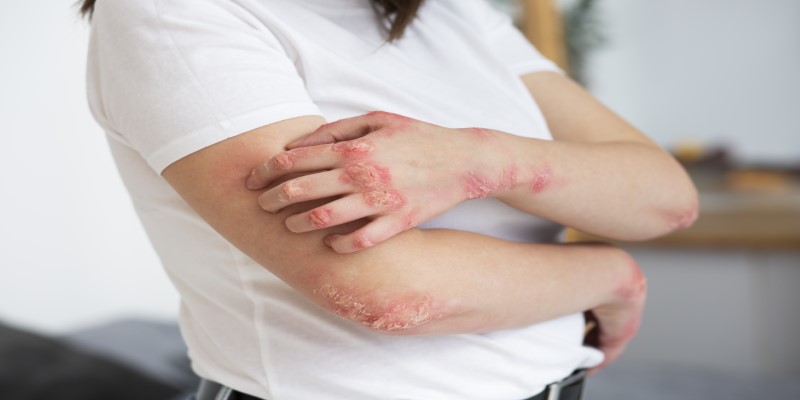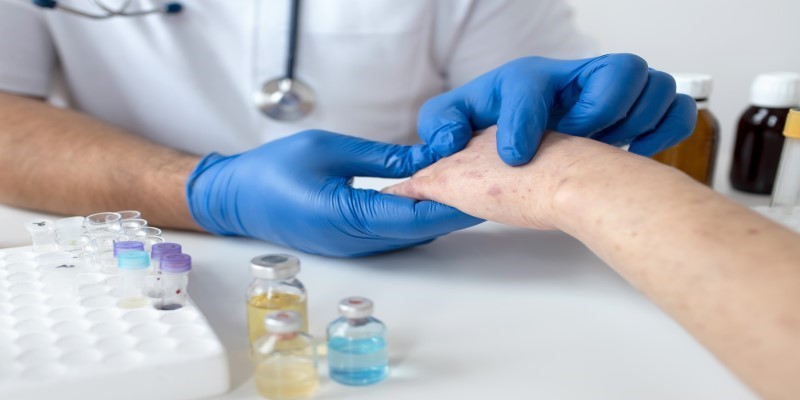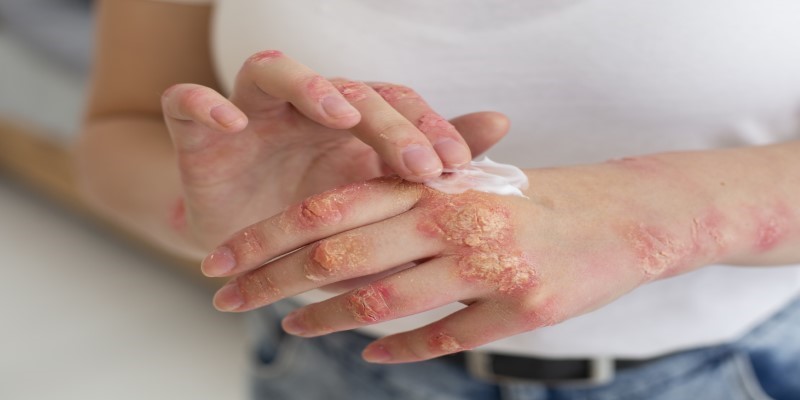Plaque Psoriasis Uncovered: A Comprehensive Guide
Plaque psoriasis is more than just a skin condition; its a chronic disease that can impact many aspects of a persons life. If you've ever noticed red, scaly patches on someones skinor perhaps even on your ownyou might have encountered plaque psoriasis. This condition affects millions of people worldwide, and while it can be managed, living with plaque psoriasis often requires a combination of medical treatment, lifestyle adjustments, and emotional support.

In this article, we'll explore plaque psoriasis, its causes, how it manifests, and the various treatment options available. Whether you're looking for answers for yourself or a loved one, understanding plaque psoriasis is the first step toward managing it effectively.
What is Plaque Psoriasis?
Plaque psoriasis is the most common form of psoriasis, a chronic autoimmune disorder that affects the skin. It typically presents as raised, inflamed, red patches covered with silvery-white scales. These patches, known as plaques, can appear anywhere on the body but are most commonly found on the elbows, knees, scalp, and lower back. The condition is not contagious, but it can be unsightly and uncomfortable, leading to itching, burning, and pain.
The exact cause of plaque psoriasis isn't fully understood. Still, it's believed to be related to an immune system malfunction that causes the body to produce skin cells at an accelerated rate. Normally, skin cells grow and shed in a cycle of about a month. In those with plaque psoriasis, this process happens in just a few days, leading to the buildup of dead skin cells on the surface, which forms the characteristic plaques.
Causes and Triggers
While the underlying cause of plaque psoriasis involves an overactive immune system, several factors can trigger or worsen the condition. Genetics plays a significant role, as those with a family history of psoriasis are more likely to develop it. However, environmental factors and lifestyle choices also influence the severity and frequency of flare-ups.
Stress is one of the most common triggers, as it can affect the immune system and exacerbate symptoms. Additionally, certain medications, such as beta-blockers, lithium, and antimalarials, can trigger psoriasis or make existing symptoms worse. Infections, particularly strep throat, have been known to trigger the onset of psoriasis in some individuals.
Lifestyle factors can also aggravate plaque psoriasis. Smoking is particularly harmful, as it not only increases the risk of developing psoriasis but also makes the condition more severe.
Symptoms and Diagnosis
The symptoms of plaque psoriasis are primarily visible on the skin, though the severity can vary greatly from person to person. The most common symptoms include red patches of skin covered with thick, silvery scales; dry, cracked skin that may bleed; itching, burning, or soreness; and thickened, pitted, or ridged nails. In severe cases, the plaques can merge and cover large areas of the body.

Psoriasis is diagnosed primarily through a physical examination of the skin. A dermatologist will typically identify the characteristic plaques and may ask about your family history, as well as any recent illnesses or new medications. In some cases, a skin biopsy may be performed to rule out other skin disorders.
Treatment Options
While there is no cure for plaque psoriasis, various treatments can help manage symptoms and reduce the frequency of flare-ups. The choice of treatment depends on the severity of the condition, the location and size of the plaques, and how the individual responds to previous treatments.
Topical Treatments
For mild to moderate plaque psoriasis, topical treatments are often the first line of defense. These include corticosteroids, which reduce inflammation and slow down the production of skin cells. Other topical treatments include vitamin D analogs, retinoids, and calcineurin inhibitors. Moisturizers and emollients are also essential to keep the skin hydrated and reduce scaling.
Phototherapy
Phototherapy, or light therapy, involves exposing the skin to ultraviolet light under medical supervision. This treatment can slow down skin cell production and reduce inflammation. UVB phototherapy is the most common type and can be effective for widespread psoriasis or plaques that dont respond well to topical treatments. PUVA therapy, which combines UVA light with a drug called psoralen, is another option but is generally reserved for more severe cases due to potential side effects.
Systemic Treatments

For moderate to severe plaque psoriasis, systemic treatmentsthose that affect the entire bodymay be necessary. These include oral medications like methotrexate, cyclosporine, and acitretin, which suppress the immune system or slow down skin cell production. Biologic drugs, which target specific parts of the immune system, have become increasingly popular in recent years. These drugs are administered by injection or infusion and can be highly effective, especially for those who dont respond to other treatments.
Lifestyle Modifications
In addition to medical treatments, certain lifestyle changes can help manage plaque psoriasis. Maintaining a healthy weight, avoiding smoking and excessive alcohol consumption, and managing stress through techniques like meditation or yoga can all contribute to better control of the condition. Its also important to follow a skincare routine that includes gentle cleansing and regular moisturizing to prevent skin irritation.
Conclusion
Plaque psoriasis is a chronic condition that can affect many aspects of life, from physical health to emotional well-being. While there is no cure, understanding the disease, recognizing its triggers, and exploring various treatment options can help manage symptoms and reduce flare-ups.
Whether through medical treatments, lifestyle changes, or a combination of both, people with plaque psoriasis can find relief and lead fulfilling lives. If you or someone you know is struggling with plaque psoriasis, its important to reach out to a healthcare provider to discuss the best course of action. With the right support and resources, its possible to live well with plaque psoriasis.
Related Articles

Harnessing Data Analytics Tools to Propel Your Business Forward
By - Rick Novak
Sep 06, 2024

Navigating the Best Animation Courses: A Pathway for Aspiring Animators
By - Rick Novak
Sep 05, 2024

Transforming Audience Engagement Through Effective Video Marketing
By - Kelly Walker
Sep 06, 2024

Kitchen Remodeling Trends of 2024: Every Homeowner Should Know
By - Rick Novak
Apr 06, 2024

Cybersecurity Masters Programs and Marketing Automation Tools in 2024
By - Kelly Walker
Sep 06, 2024

Elevating Your Career with the Flexibility of an Online MBA Degree
By - Kelly Walker
Apr 06, 2024

Which Chevy Silverados For Under $10K Should Senior Below 85 Get
By - Kelly Walker
Apr 06, 2024

Repossessed Car Buying Guide for Seniors: Save Big on Your Next Vehicle
By - Kelly Walker
Sep 04, 2024

Navigating the Best Internet Options in Hong Kong for 2024
By - Kelly Walker
Sep 04, 2024

A Comprehensive Guide to Bank Account Opening Financial Rewards
By - Kelly Walker
Apr 05, 2024

Upgrade your sleep with a smart bed! Discover tips to sleep smarter and improve your restful experience. Find out how technology can enhance your bedtime routine.
By - Rick Novak
Apr 04, 2024

Understanding the Appeal of Coworking Spaces and Shared Offices
By - Kelly Walker
Sep 05, 2024
